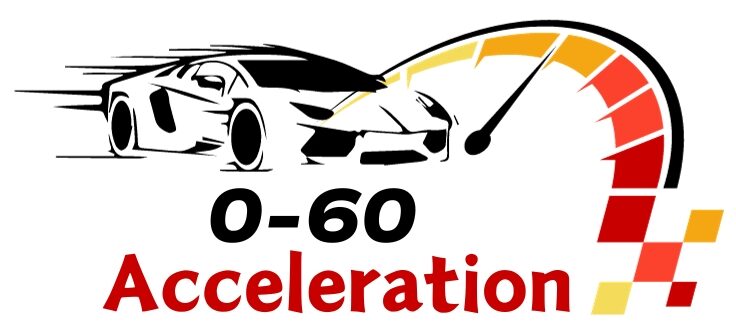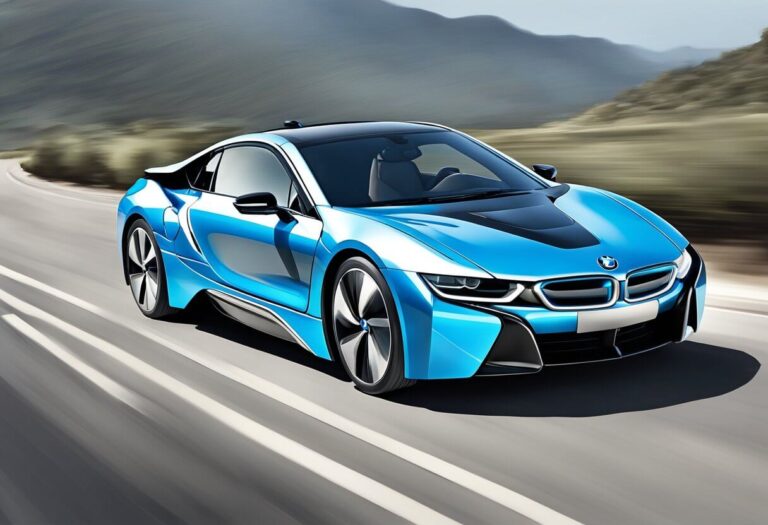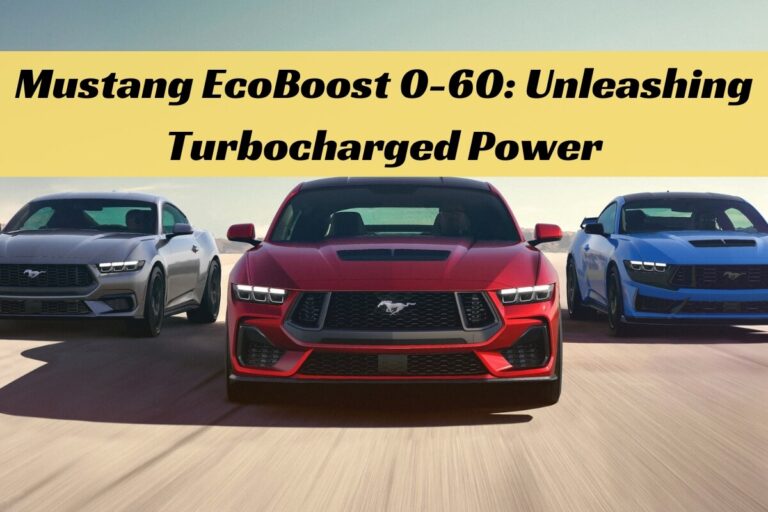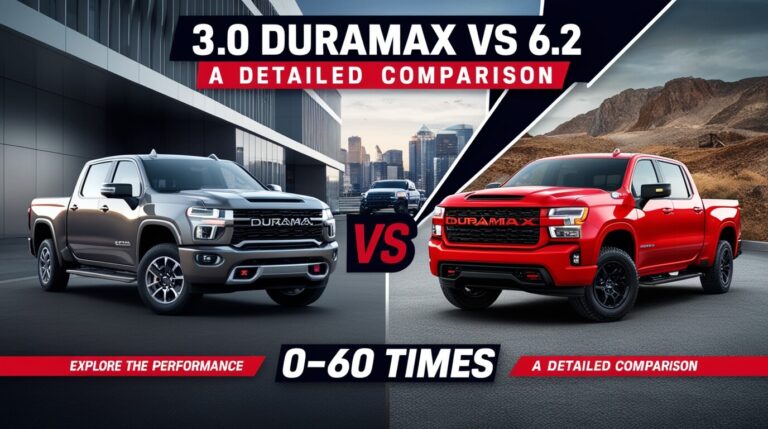
Electric vehicles have come a long way in recent years, with major improvements in range, charging speed, and performance. One automaker that has pushed the envelope is Tesla, whose lineup of all-electric vehicles includes some of the quickest accelerating production cars on the market today. But just how fast are Tesla’s cars really? What are the actual 0-60 mph times for Tesla’s current models?
In short, Tesla’s acceleration times currently range from as quick as 1.98 seconds to 4.8 seconds, depending on the model.
In this post, we’ll take a closer look at the different Tesla models available and examine their real-world 0-60 mph acceleration times. We’ll see how Tesla stacks up against its electric vehicle competitors, as well as high-performance internal combustion engine sports cars. We’ll also consider some of the innovations and technology advancements that allow Tesla’s EVs to launch from 0-60 mph in blazing fast times. Whether you’re an EV enthusiast or just a lover of speed, you won’t want to miss this deep dive into the incredible acceleration capabilities of today’s Tesla lineup.
Tesla Model Overview
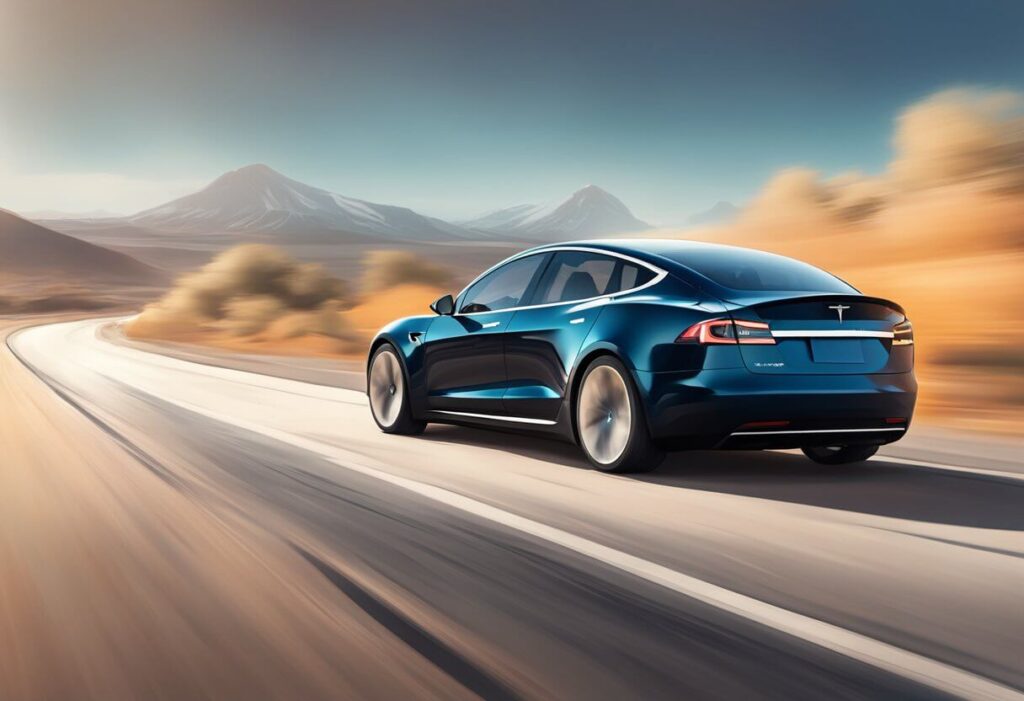
Tesla is a leading electric car manufacturer that has revolutionized the automotive industry with its innovative and high-performance vehicles. The company offers a range of models, each with its unique features and capabilities. In this section, we will provide an overview of the four main Tesla models: Model S, Model 3, Model X, and Model Y.
Model S
The Model S is Tesla’s flagship sedan that offers a combination of luxury, performance, and efficiency. It is available in several configurations, ranging from the Long Range Plus to the high-performance Plaid. The Model S can accelerate from 0 to 60 mph in as little as 1.98 seconds, making it one of the fastest production cars in the world. It also has a range of up to 405 miles on a single charge, making it one of the most efficient electric cars on the market.
Model 3
The Model 3 is Tesla’s entry-level sedan that offers a more affordable option for those looking to own a Tesla. It is available in several configurations, ranging from the Standard Range Plus to the high-performance Model 3 Performance. The Model 3 can accelerate from 0 to 60 mph in as little as 3.1 seconds and has a range of up to 358 miles on a single charge. It also features a minimalist interior with a large touchscreen display that controls most of the car’s functions.
Model X
The Model X is Tesla’s luxury SUV that offers a combination of performance, utility, and style. It is available in several configurations, ranging from the Long Range Plus to the high-performance Plaid. The Model X can accelerate from 0 to 60 mph in as little as 2.5 seconds and has a range of up to 335 miles on a single charge. It also features falcon-wing doors that provide easy access to the second and third-row seats.
Model Y
The Model Y is Tesla’s compact SUV that offers a balance of performance, versatility, and efficiency. It is available in several configurations, ranging from the Long Range to the high-performance Model Y Performance. The Model Y can accelerate from 0 to 60 mph in as little as 3.5 seconds and has a range of up to 310-330 miles on a single charge. It also features a spacious interior with a panoramic glass roof and a large touchscreen display that controls most of the car’s functions.
In summary, Tesla offers a range of models that cater to different needs and preferences. Whether you are looking for a luxurious sedan, a versatile SUV, or a high-performance vehicle, Tesla has a model that fits your requirements.
Performance Metrics

Acceleration Basics
Acceleration is a key performance metric in the automotive industry, and Tesla has made a name for itself with its impressive acceleration times. Acceleration refers to the rate at which a vehicle can increase its speed, and it is typically measured in terms of the time it takes to go from 0 to 60 miles per hour (mph).
Measuring 0-60 Times
Measuring a vehicle’s 0-60 time is a straightforward process. The vehicle is brought to a complete stop, and then the driver floors the accelerator pedal. A timing device is used to measure the time it takes for the vehicle to reach 60 mph from a standstill. The resulting time is the vehicle’s 0-60 time.
Factors Affecting Performance
Several factors can affect a vehicle’s acceleration performance, including its weight, power output, and traction. Tesla vehicles are known for their impressive acceleration times, in part due to their electric powertrains, which provide instant torque. Additionally, Tesla vehicles benefit from their relatively low weight, which helps to improve their acceleration performance.
Factors that can negatively impact acceleration performance include poor traction, which can cause wheelspin and reduce grip, and high altitude, which can reduce the amount of oxygen available to the engine.
Comparison With Competitors
Electric vs. Internal Combustion
When comparing the 0-60 acceleration times of electric cars to their internal combustion engine (ICE) counterparts, it becomes clear that electric cars have a significant advantage. The instant torque provided by electric motors allows for quicker acceleration, resulting in faster 0-60 times.
For example, the 2024 Tesla Cybertruck is expected to have a 0-60 time of under 2.6 seconds, which is faster than most ICE sports cars. The 2024 Porsche 911 GT3, for comparison, has a 0-60 time of 3.2 seconds.
Market Segment Rivals
Within the electric car market, Tesla’s 0-60 times are also impressive when compared to their market segment rivals. The 2024 Tesla Model S Plaid has a 0-60 time of under 1.98 seconds, making it the fastest production car on the market.
In comparison, the 2024 Lucid Air Dream Edition has a 0-60 time of 3.0 seconds, and the 2024 Rimac Nevera has a 0-60 time of 1.85 seconds. While these cars are still very fast, they cannot match the acceleration of Tesla’s Plaid model.
Overall, Tesla’s 0-60 times are highly competitive within both the electric car market and the broader automotive market. The instant torque provided by electric motors gives Tesla a significant advantage over ICE vehicles, and their market segment rivals struggle to keep up.
Technological Innovations
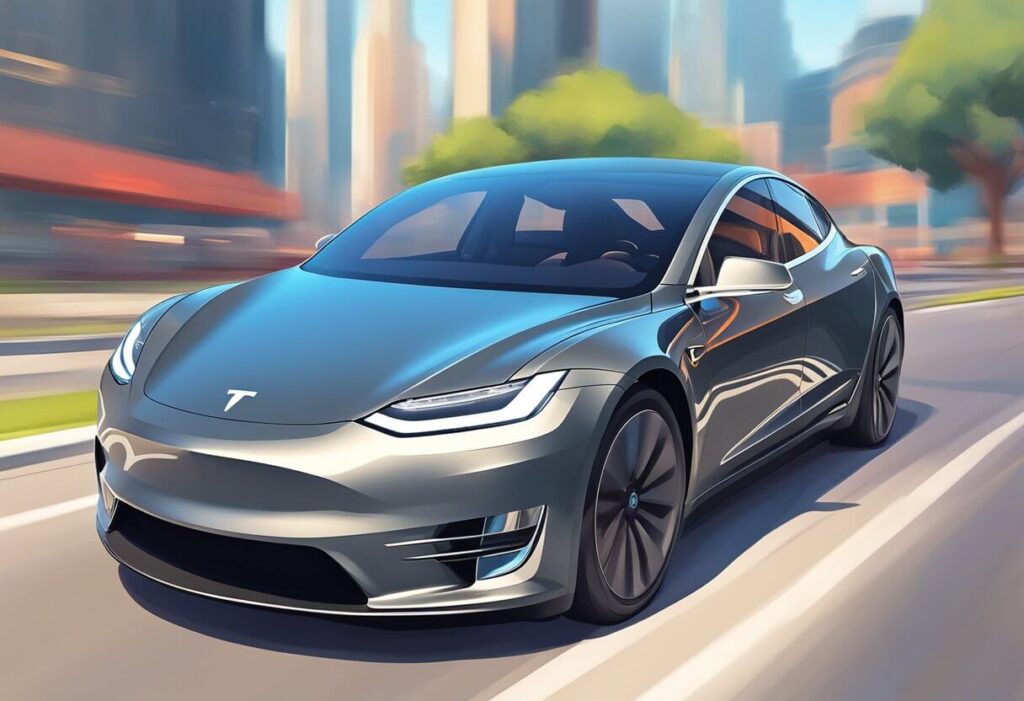
Battery Technology
Tesla’s battery technology is one of the key factors contributing to its impressive 0-60 times. Tesla’s batteries use lithium-ion technology, which is known for its high energy density and long lifespan. The company’s battery packs are also designed to be modular, allowing them to be easily swapped out or upgraded as needed.
Software Updates
Tesla’s software updates are another important innovation that contributes to its impressive performance. The company regularly releases over-the-air updates that improve the performance and efficiency of its vehicles. These updates can also add new features and functionality, such as the “Ludicrous” and “Ludicrous+” launch control modes.
Motor Engineering
Tesla’s electric motors are another key factor contributing to its impressive performance. The company’s motors are designed to be highly efficient, with minimal losses due to friction and other factors. They are also designed to be lightweight, which helps to reduce the overall weight of the vehicle and improve its acceleration.
Driving Experience

When it comes to driving experience, the Tesla 0-60 is a force to be reckoned with. The car offers a smooth and exhilarating ride, thanks to its instant torque and electric powertrain.
Handling and Dynamics
The handling and dynamics of the Tesla 0-60 are impressive. The car’s low center of gravity and balanced weight distribution make it feel stable and agile on the road. The steering is responsive and precise, allowing the driver to easily navigate through tight turns and curves. The suspension system is also well-tuned, providing a comfortable ride even on bumpy roads.
Safety Features
Tesla is known for its advanced safety features, and the 0-60 is no exception. The car comes with a suite of safety technologies, including forward collision warning, automatic emergency braking, and lane departure warning. These features work together to help prevent accidents and keep the driver and passengers safe.
Autopilot Functionality
The Tesla 0-60 also comes with Autopilot, a semi-autonomous driving system that can take over some of the driving tasks. The system includes features like adaptive cruise control, automatic lane changes, and self-parking. While Autopilot is not a fully autonomous system, it can make driving easier and less stressful, especially on long trips.
Owner Testimonials

Tesla owners have been raving about the impressive acceleration and speed of their vehicles. Many owners have reported achieving 0-60 mph times that are faster than Tesla’s advertised numbers. Here are some testimonials from Tesla owners:
- “I’ve owned my Model S for over two years now, and I still get a rush every time I accelerate from a stop. The car is so quick and responsive, it’s like driving a rocket ship on wheels.” – John, Model S owner
- “I upgraded to the Model 3 Performance and I couldn’t be happier. The car is lightning fast and handles like a dream. It’s also great to know that Tesla can push out software updates that make the car even faster over time.” – Sarah, Model 3 Performance owner
- “I was skeptical about buying an electric car, but after test driving the Model X, I was sold. The acceleration is insane, and the fact that it’s all electric makes it even better. I can’t imagine ever going back to a gas car.” – Tom, Model X owner
These testimonials highlight the impressive acceleration and speed that Tesla vehicles are known for. It’s clear that owners are thrilled with the performance of their Tesla cars and appreciate the ability to receive software updates that can improve their vehicle’s performance even further.
Industry Impact
Electric Vehicle Market
Tesla’s focus on electric vehicles has had a significant impact on the auto industry. Prior to Tesla’s entry into the market, electric vehicles were seen as a niche product with limited demand. However, Tesla’s success in creating high-performance electric vehicles has changed the perception of electric vehicles and has driven demand for them.
Tesla’s Model S, Model X, and Model 3 all have impressive acceleration capabilities, with 0-60 times ranging from 1.9 seconds to 5.3 seconds. This has demonstrated that electric vehicles can be just as fast and powerful as gasoline-powered vehicles, if not more so. Other automakers have taken notice of Tesla’s success and have begun investing heavily in electric vehicle technology.
Environmental Considerations
Tesla’s focus on electric vehicles also has important environmental implications. Electric vehicles produce zero emissions, which makes them an attractive option for consumers who are concerned about the environment. Tesla’s success in creating high-performance electric vehicles has helped to drive demand for electric vehicles, which in turn has helped to reduce greenhouse gas emissions from the transportation sector.
In addition to producing electric vehicles, Tesla has also invested heavily in renewable energy. The company produces solar panels and energy storage systems, which can be used to power homes and businesses. By investing in renewable energy, Tesla is helping to reduce reliance on fossil fuels and is promoting a more sustainable future.
Future Developments

Upcoming Models
Tesla has made a name for itself in the automotive industry by producing electric cars that are both efficient and fast. The company’s current lineup includes the Model S, Model X, Model 3, and Model Y. However, there are several upcoming models that Tesla fans can look forward to.
One of the most highly anticipated models is the Tesla Roadster, which was first unveiled in 2017. According to Tesla, the Roadster will be capable of accelerating from 0 to 60 mph in just 1.9 seconds, making it one of the fastest cars in the world. The Roadster is expected to be released in 2022, although there have been some delays.
Another upcoming model is the Cybertruck, which was unveiled in 2019. The Cybertruck is an all-electric pickup truck that boasts impressive performance and a unique design. Tesla claims that the Cybertruck will be capable of accelerating from 0 to 60 mph in just 2.6 seconds, making it faster than many sports cars. The Cybertruck was released in late 2021 or early 2023.
Potential Improvements
Tesla is constantly working to improve its vehicles and push the boundaries of electric car technology. One area where the company is expected to make significant improvements is in the area of battery technology. Tesla is currently working on developing a new type of battery that is more efficient and longer-lasting than current lithium-ion batteries. This new battery technology could lead to longer driving ranges and faster charging times.
Another area where Tesla is expected to make improvements is in the area of self-driving technology. Tesla’s current Autopilot system is already one of the most advanced on the market, but the company is working on developing a fully autonomous driving system that will allow cars to drive themselves without any input from the driver. This technology is still several years away, but it has the potential to revolutionize the way we think about transportation.
Overall, Tesla is a company that is constantly pushing the boundaries of what is possible with electric cars. With several exciting new models on the horizon and a commitment to innovation, Tesla is sure to remain a major player in the automotive industry for years to come.
